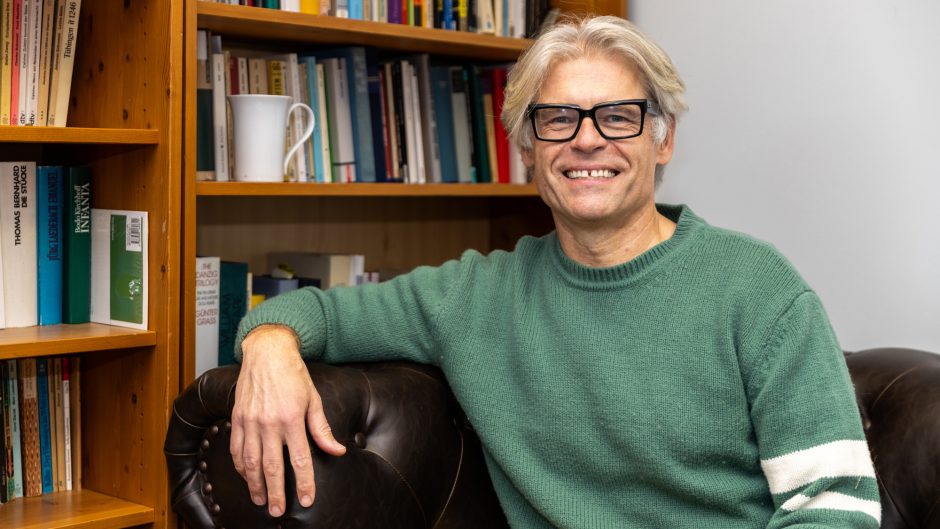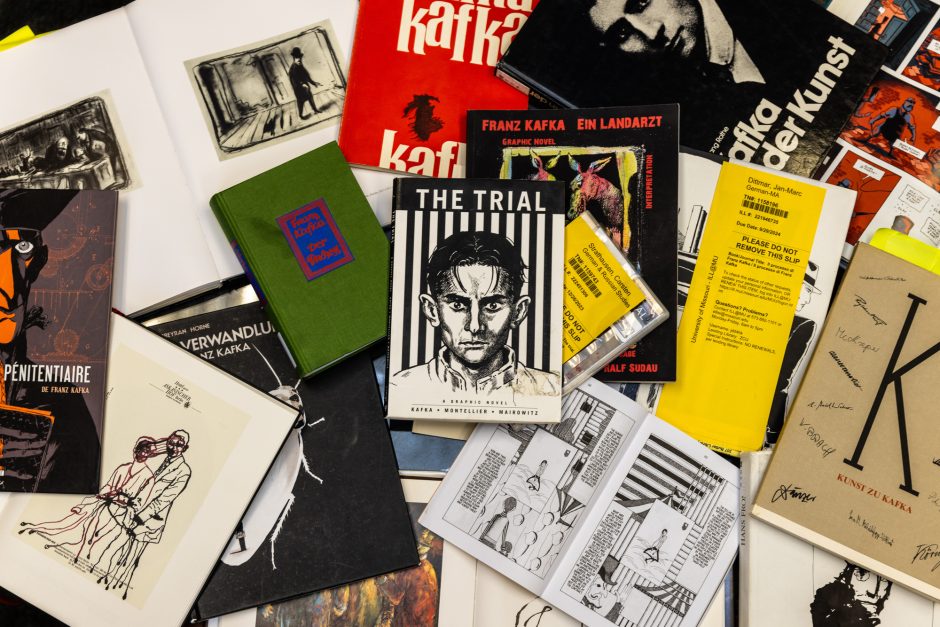
Jan. 31, 2024
Carsten Strathausen is accustomed to writing his scholarly work on his own, but his latest project, Adapting Kafka, was made possible with help from University of Missouri library staff at the Interlibrary Loan service.
Adapting Kafka aims to catalogue as many adaptations as possible of Franz Kafka’s novel, “The Trial,” into a searchable database and website with visual tools for viewing the adaptations. The project is in collaboration with Verena Kick, an assistant professor of German at Georgetown University.
Read on for a Q&A with Strathausen.
Why is it important to catalogue these adaptations? What do you hope users glean from this website?
The idea behind Adapting Kafka was to acknowledge the multiplicity of voices that speak in the name of Kafka through these adaptations. Because Kafka’s work appears in a broad variety of different contexts, across languages, cultures, media and genres, there is no one Kafka in the world; there are many Kafkas, and they speak in different voices. We want to record their existence and allow users to learn about them. We provide samples of selected adaptations and critical commentary throughout.
How did you become interested in Kafka?
As a German, it would be difficult NOT to be introduced to Kafka early on, most likely in school. That is true for me as well. I started reading Kafka when I was a teenager and continued to read him later in my literary studies at Tübingen University in Germany.
I never published much on Kafka because there was so much written about him already. The sole reason I became interested in Kafka was through the adaptations, in particular film, graphic novels and illustrations. There was a rich world of fascinating perspectives and interpretations of Kafka, and few people really knew about this material or had spent time analyzing it.
Why was “The Trial” chosen for this project?
“The Trial” has been interpreted in so many different ways—in Existentialist terms, as a depiction of the absurdity of human existence and our need/desire for redemption; in religious terms, as an allegory of our relation to God; in political terms, as a critique of modern state bureaucracy and the oppression of the individual. There is no literary theory about the 20th century that has not been applied to Kafka. And there is a saying among literary scholars that any new literary theory needs to prove itself by interpretating Kafka!

What’s challenging about a project like this?
The real challenge is how to negotiate the methodological gap between the humanist tradition—that is, the shared emphasis in the humanities on the singularity of the artwork that favors close readings and socio-historical contextualization— versus the empirical study of larger datasets that appears to contradict or undermine this humanist tradition.
What’s next?
We’re in great shape for the work to continue. We received a Cross-Generational-Research-Initiative (CGRI) grant from MU Center for the Humanities ($15,000) to work with graduate and undergraduate students on Adapting Kafka over the next 12 months.
With the help of the Digital Research Initiative (DRI) library team at Georgetown University, we are building the website, which will house the database, including the visualization tools, so that users can easily search and view the adaptations, even if they are works of art film clips, etc.
In addition, we are organizing an international symposium on “Digital Kafka” at Georgetown University on Oct. 24-25, 2024. The symposium will focus on our project and bring together librarians and scholars from the US, Great Britain, Germany, and Israel.
And in June of next year, we will apply for an “NEH Digital Humanities Advancement Grant.”
Read more from the Division of Research, Innovation and Impact


